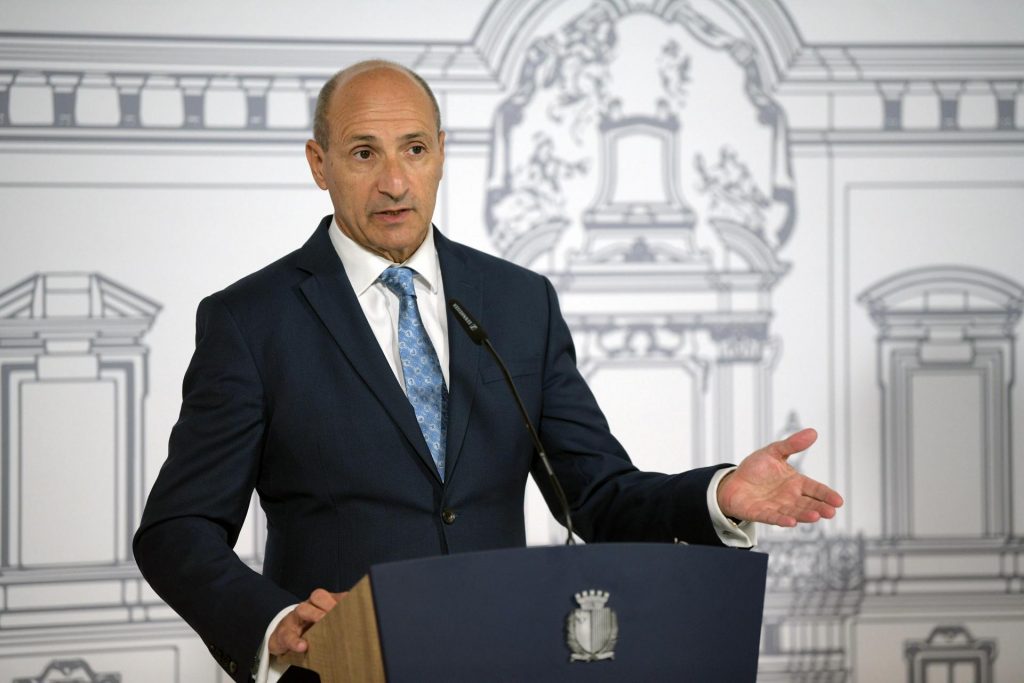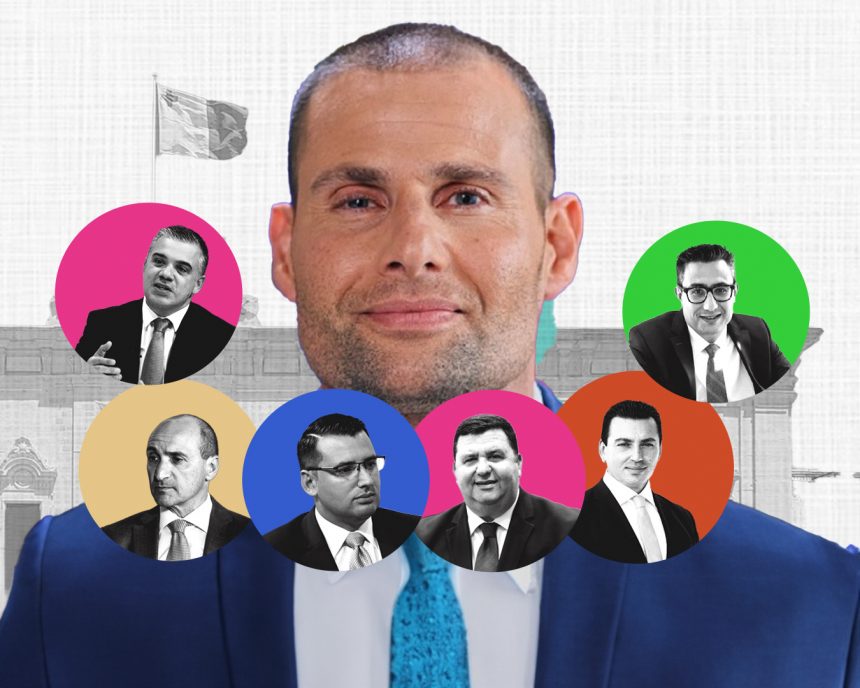In a surprising move, Prime Minister Robert Abela announced a significant cabinet reshuffle just before the upcoming EU MEP elections. This decision, which is unconventional in timing, appears to be a calculated response to the areas in which the public showed its discontent. The major changes were seen in the creation of new roles and staff changes over issues such as infrastructure management, traffic congestion, and the cleanliness of the country, all hot topics over the first year and a half of this legislature.
Strategic Replacements and Role Adjustments in Cabinet Reshuffle
The axing of Aaron Farrugia from the role of Minister for Infrastructure and Transport marks a significant turn in Prime Minister Robert Abela’s cabinet reshuffle and the politician’s career. This decision seems to reflect a response to mounting public frustration over poorly coordinated infrastructure projects and traffic management issues. Farrugia was replaced by Chris Bonett, for whom this promotion seems like an acknowledgment of a positive performance as Parliamentary Secretary for EU Funds. Project Management was key in the role of EU funds, and the Prime Minister will be hoping that that experience will help in the new role.

The same can be said with the appointment of Glenn Bedingfield as Parliamentary Secretary for Public Cleanliness. Again, this is a direct response to the recent displeasure over the state of cleanliness in Malta. Bedingfield, also a stalwart of the party since the late 90s, is a choice that resonates with the core party base.

Legal Scrutiny and Industry Regulation
Jonathan Attard, while maintaining his role as Minister for Justice, now also oversees construction sector reform, an interesting addition following the Jean Paul Sofia Case. His expanded duties might indicate an intent to revamp the legal frameworks in the construction industry, addressing obvious regulatory gaps. Hopefully, this move signals a commitment to heightened safety, accountability, and transparency in a highly scrutinized sector.
International Aspirations for Fearne
Another significant development is the projection of Deputy Prime Minister Chris Fearne onto the international stage as Malta’s nominee for EU Commissioner. The ex-surgeon was touted to leave local politics for quite a while and following his successful handling of the COVID-19 pandemic which not only elevated his domestic stature but also bolstered his international reputation. This upward move will align with his career projections.

Streamlining Roles
The portfolio of enterprise, previously under the watch of Minister Miriam Dalli, has been shifted to Silvio Schembri, who also holds the economy portfolio. This consolidation under one minister seems like a logical step, aiming to streamline operations and policies in these interrelated sectors. Health and elderly care are now also unified under one ministry. This change, expected to reduce bureaucratic overlap, indicates a more holistic approach to healthcare, particularly for the elderly, aligning with contemporary best practices.
Surprising in timing, but logical cabinet reshuffle
This reshuffle, while unexpected in its timing, is an indication of the government’s intent to address public concerns. By realigning roles and promoting those who performed, the cabinet reshuffle can be seen as a positive one from a national perspective and a logical one from a political angle as both Malta and the government prepare for the EU MEP elections.

Leave a Reply